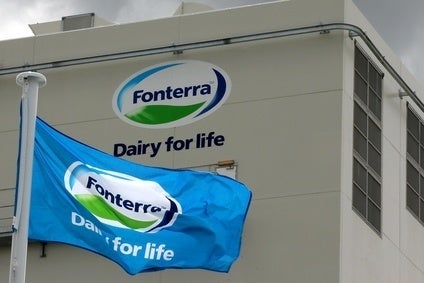
Fonterra, the New Zealand-based dairy group, today (24 September) booked higher annual profits despite lower sales.
Alongside the increase in earnings, which came after profits fell in the first half of the year, the co-operative lifted its forecast for what it plans to pay its farmer-members.

Discover B2B Marketing That Performs
Combine business intelligence and editorial excellence to reach engaged professionals across 36 leading media platforms.
The world's largest dairy exporter posted net profit after tax of NZ$506m for the 12 months to the end of July, up from NZ$179m a year earlier. However, in the previous year, Fonterra booked net profit of NZ$736m.
Fonterra said its normalised EBIT reached NZ$974m, compared to NZ$503m a year ago. A year earlier, the company booked normalised EBIT of over $1bn.
Revenue was down 15% at NZ$18.8bn. Volumes grew 9%. Amid a slump in dairy commodity prices, CEO Theo Spierings said the year had been "one of the most difficult I’ve known".
Spierings said Fonterra's improved second-half results were driven by a focus on cash and costs. "We focused on improving our sales mix, achieving more efficiencies, maximising our gross margins and achieving our strategic goals faster."

US Tariffs are shifting - will you react or anticipate?
Don’t let policy changes catch you off guard. Stay proactive with real-time data and expert analysis.
By GlobalDataHe added: "Looking ahead, this uncertainty means that world markets are likely to be difficult in the medium-term. However, we will be more than ready when the market turns."
The company upped its forecast total payout for the 2015/16 season to NZ$5.00 to $5.10 per kgMS due to an increase in the forecast farmgate milk price of 75 cents. Chairman John Wilson said the improved forecast farmgate price reflected the increase in global prices since July. Whole milk powder has risen 44%, with skim milk powder 21% higher.
However, Wilson added: "Current global prices are unsustainable. While there are signs that supply growth globally is easing, a lift in demand, which is needed for prices to continue to rise, is still to come."





